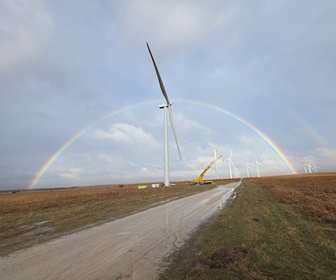TPI Composites (TPI) has announced its collaboration with the University of Texas in Dallas to apply physics-informed machine learning algorithms to simulate and optimise the composite curing process using multi-zone temperature control.
This initiative aims to address a current technological gap by developing a smart “digital twin” that enhances the curing process in blade manufacturing. Funded by the Office of Energy Efficiency & Renewable Energy, the project seeks to accelerate the transition of machine learning-based modelling tools from academia to real industrial applications.
The digital twin will utilise inputs such as the spatial and temporal characteristics of the process, along with material properties of the composite components, to guide manufacturing by providing optimal spatiotemporal temperature profiles needed to achieve the desired mechanical properties. As the blade manufacturing process progresses, real-time data from sensors will be collected, allowing thermal loads in multiple heating zones to be adjusted based on the optimal cure trajectory identified by the digital twin in the background.









